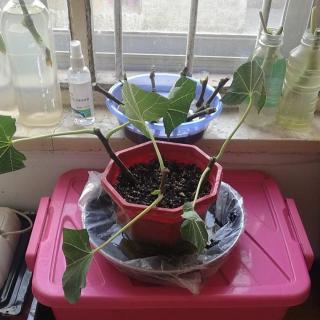
介绍:
Walden [ˈwɔldən] (Issue 194)
16. The Pond in Winter(2)
[3] Early in the morning, while all things are crisp with frost, men come with fishing-reels and slender lunch, and let down their fine lines through the snowy[ˈsnəʊɪ] field to take pickerel and perch; wild men, who instinctively follow other fashions and trust other authorities than their townsmen, and by their goings and comings stitch towns together in parts where else they would be ripped. They sit and eat their luncheon[ˈlʌntʃən] in stout fear-naughts on the dry oak leaves on the shore, as wise in natural lore as the citizen is in artificial. They never consulted with books, and know and can tell much less than they have done. The things which they practice are said not yet to be known. Here is one fishing for pickerel[ˈpɪkərəl] with grown perch for bait. You look into his pail with wonder as into a summer pond, as if he kept summer locked up at home, or knew where she had retreated. How, pray, did he get these in midwinter? Oh, he got worms out of rotten logs since the ground froze, and so he caught them. His life itself passes deeper in nature than the studies of the naturalist penetrate; himself a subject for the naturalist. The latter raises the moss and bark gently with his knife in search of insects; the former lays open logs to their core with his axe, and moss and bark fly far and wide. He gets his living by barking trees. Such a man has some right to fish, and I love to see nature carried out in him. The perch swallows the grub-worm, the pickerel swallows the perch, and the fisher-man swallows the pickerel; and so all the chinks in the scale of being are filled.
[4] When I strolled around the pond in misty weather I was sometimes amused by the primitive mode which some ruder['ruːdər] fisherman had adopted. He would perhaps have placed alder branches over the narrow holes in the ice, which were four or five rods apart and an equal distance from the shore, and having fastened the end of the line to a stick to prevent its being pulled through, have passed the slack line over a twig of the alder, a foot or more above the ice, and tied a dry oak leaf to it, which, being pulled down, would show when he had a bite. These alders loomed through the mist at regular intervals as you walked half way round the pond.
一大早,当万物都粘着冰霜,人们带着自己的鱼竿和简单的午餐来了,穿过雪野放下精细的渔线来钓梭鱼和鲈鱼;爱旷野的人们直觉会告诉他们去追随另一种时尚和权威——而不像镇上的人们——通过他们的来去缝合起镇子支离破碎的部分,要不然会有裂隙[xì]。他们坐在岸边干燥的橡树叶子上肆无忌惮地享受他们的午宴,对自然的聪慧相当于市民与城市的虚伪。他们从不用咨询什么书,所做的远比他们知道和所说的要多。这里就有一种用刚长成的鲈鱼钓梭鱼的钓法。你看见他的水桶,会惊奇如同望进了一个夏天的池塘,仿佛他把夏天锁在了自己家里,或知道她退去了哪里。那么,请问,在隆冬他是如何做到的呢?噢,他从朽木里得到虫子,既然地已经冻得结实,而且就用那些虫子逮到鱼。他的生活本身就更深入了自然,比探刺[cì]自然的博物学家的研究领域;他本身就是博物学家的研究对象。后者轻柔地用刀掀开苔藓和树结寻找昆虫;前者用斧子劈[pī]开木头暴露核心,让苔藓和树结空中四溅。他通过咆哮[xiào]的木头得到自己的活物。这样的人有某种权利垂钓,而且我也爱看着自然规律在他身上实施。鲈鱼吞掉了那虫子,梭鱼吞吃鲈鱼,渔人吞吃那梭鱼;于是所有的生物链就衔接和循环起来。
当我在雾天闲逛,时而会被某些更粗犷[guǎng]一些的渔人采用的原始方式逗乐。他也许会放赤杨树枝在冰上的窄洞里,然后把渔线的末端固定在一根棍上来避免被拉下去,然后把松松的线绕过一根赤杨木杈,离冰面一英尺左右,再捆上一片橡树叶子,一旦被拉下来,就会显示咬钩了。你只要绕湖转上半圈,这些赤杨枝就在雾中成规律地若隐若现。
大家还在听

